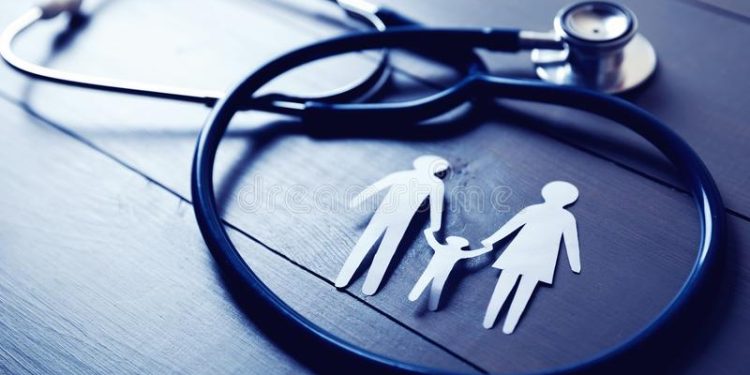By Chris Agabi
Two non-profit organisations, Lawyers Alert and Media,Health and Rights Initiative of Nigeria (MHR) through a comprehensive situational analysis uncovered pressing gender-related barriers hindering women’s access to healthcare services for Tuberculosis (TB), Human Immunodeficiency Virus (HIV), and Malaria in Benue State.
The analysis was conducted
under the Gender Equality Fund (GEF) project.
The report also underscored systemic inequalities, cultural norms, economic constraints, and policy gaps that obstructs women’s right to equitable healthcare access.
Briefing journalist at a virtual press briefing on the outcome of their findings and recommendations, Barr. Rommy Mom, the President, Lawyers Alert, the analysis further “identifies critical policy gaps, gender disparities in healthcare access, and the urgent need for community-driven advocacy to address these challenges.”
Additionally, “the findings emphasize the necessity of strengthening healthcare systems and enhancing community engagement to tackle stigma and discrimination.”
Find below except from the speech read by Barr. Mom at the briefing anchored by Mrs. Alu Azege, the Executive Director, MHR.
Key Findings in Benue State
Benue State continues to struggle with high HIIV prevalence (4.9%) and a significant TB burden,exacerbated by HIV-TB co-infection rates exceeding 25%. The report identifies the following challenges:
1. High Disease Burden: Benue State continues to struggle with a high prevalence of HIV (4.9%) and TB, with 10% of Nigeria’s TB cases reported in the state. Malaria remains endemic,particularly affecting children under five and pregnant women.
2. Gender-Related Barriers: Women in Benue State face significant challenges in accessing healthcare due to patriarchal norms, economic dependency, and cultural beliefs. Spousal consent requirements, stigma, and gender-based violence (GBV) further exacerbate these challenges.
3. Stigma and discrimination associated with TB and HIV discourage women from seeking timely diagnosis and treatment. Fear of social ostracism and blame for infecting spouses often leads to delayed care.
4. Inadequate healthcare infrastructure, frequent stockouts of essential medications, and limited access to diagnostic tools hinder effective service delivery, particularly in rural areas.
5. Traditional beliefs, such as attributing diseases to witchcraft, and reliance on native treatments delay access to modern healthcare services.
Recommendations:
Strengthen Gender-responsive Policies: implement and enforce policies that address the unique healthcare needs of women, including integrating reproductive health services with TB,HIV,and Malaria interventions.
Empowerment of women-led organizations and community health champions to challenge harmful cultural norms and promote gender-sensitive healthcare.
Engage men as allies in healthcare decision-making to dismantle patriarchal barriers and promote gender equality within households.
Increase funding for healthcare facilities, ensure consistent availability of medications, and expand access to diagnostic tools, particularly in rural areas.
Launch targeted campaigns to reduce stigma, dispel myths, and encourage early healthcare-seeking behaviour.
Call to Action
Lawyers Alert and MHR call on the Benue State Government, healthcare providers, civil society organizations, and international partners to prioritize gender-transformative approaches in healthcare delivery.
By addressing the systemic and cultural barriers identified in this report, we can create a more equitable and resilient healthcare system that ensures no one is left behind.
About the Project
The “Law, Rights, and Community Empowerment for Social Change in TB, HIV, and Malaria Response,”, supported by the GEF Fund, aims to address gender-related barriers to healthcare access in Nigeria, particularly for women and vulnerable groups affected by HIV, TB, and Malaria through movement Building that comprises of women leaders and women-led health-focused organizations.
The project strengthens policy advocacy, community-based interventions, and stakeholder collaboration to ensure equitable access to healthcare services in Akwa Ibom and Benue States.
The situational analysis conducted under this project serves as a critical tool to guide this intervention and drive sustainable improvements in health outcomes for women and marginalized groups.
Lawyers Alert, MHR, Uncover Gender Barriers Against Women Access to TB, HIV, Malaria Care in Benue
0
Leave a Reply Cancel reply
FOLLOW US
BROWSE BY CATEGORIES
BROWSE BY TOPICS
2023 Benue Budget
Abuja-Kaduna Rail
Access Corporation
Access pension
airports concession
Aviation
Ayu
Benue Budget
Benue Community
Buhari
Business
CBN
Central Bank
Dana Air
Economy
FGPL
Herdsmen
Herdsmen attacks
insecurity
insurance
Maritime
Min of Transport
MSMEs
NAICOM
NCAA
Nigeria
Nigeria -Cameroon Border Post
Nigeria Air
NRac
Onne Port
ooh
Orrom
Ortom
PDP
PenCom
pension
Railway
Sambo Jaji
Transcorp
Transcorp Group
Transcorp Hotels Plc
UBA
Ukohol
Wike
Wildon Ideva
Economy Footprint
The EconomyFootprint is published by Ideas Tent Communications Ltd®. All Rights Reserved.
Recent News
CDS Charge Troops to Discharge Duty With Professionalism, Integrity
February 13, 2026
No Retired Army General Bears Alhaji Tijjani Rauf – Army Clarifies
February 13, 2026













